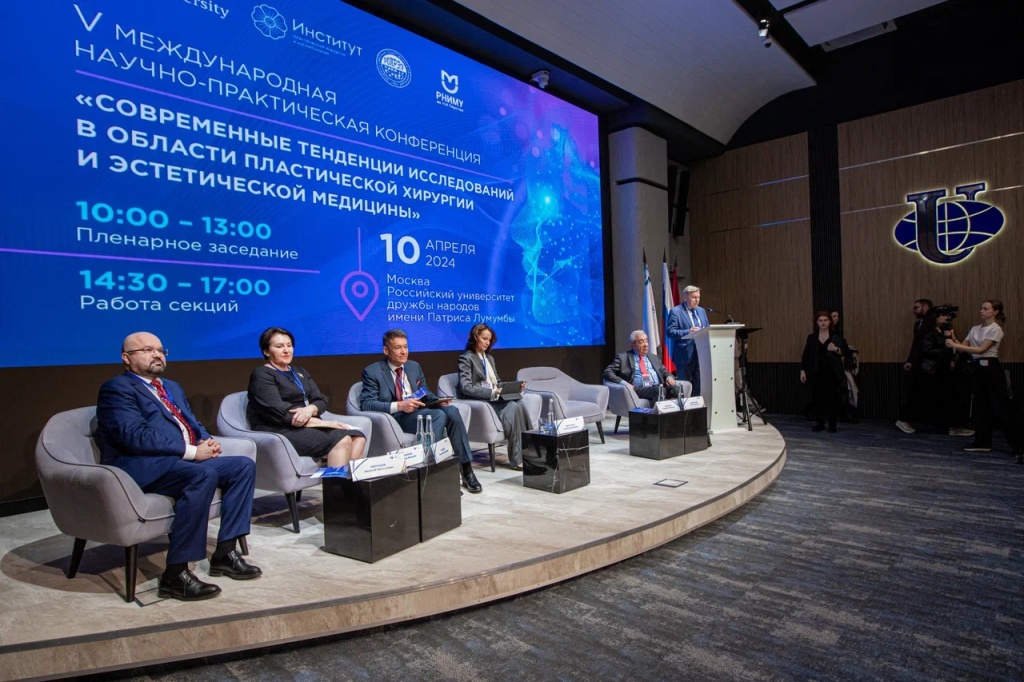Evalar supported the scientific discussion "Diets and nutrition in aesthetic medicine" at RUDN University
On April 10, the Peoples' Friendship University of Russia (known as RUDN University) hosted a scientific discussion focused on the relationship between nutrition, macro- and micronutrient deficiencies, and the development of aging processes. Participants examined ways to address nutritional deficiencies through the intake of modern nutraceuticals.

During the discussion, Svetlana Orlova, Doctor of medical sciences, professor and head of the Department of Dietetics and Clinical Nutrition at RUDN, highlighted the widespread issue of unbalanced diets, where high-calorie diets are often lacking in beneficial nutrients: "In the Russian Federation, various forms of nutritional disorders are being registered. For instance, there is a rapid increase in obesity rates: over 419,000 new cases were identified in 2022, which is 10% more than in 2021. Alongside this, a deficiency of three or more vitamins is prevalent, affecting about 22% of those examined, while only 14% of adults are fully supplied with all vitamins. The problem of deficiency in several minerals, primarily iron, magnesium, calcium, and selenium is also a huge problem. Unbalanced nutrition combined with micronutrient deficiency disrupts metabolic and immune processes, adversely affecting the body and accelerating its aging."
The attendees discussed various issues related to maintaining health, active longevity, and beauty. Specifically, the issue of popular restrictive diets (mono-component diets, vegan diet, keto diet, etc.) and their impact on skin beauty was examined by Elena Nikitina, PhD, associate professor at RUDN's Department of Dietetics and Clinical Nutrition. According to the expert, a gluten-free diet can lead to deficiencies in zinc, iron, and fat-soluble vitamins. Veganism often results in a deficiency of protein and vitamins A and B2, which are important for the skin condition.
Vera Kodentsova, PhD, professor and chief researcher at the Laboratory of Vitamins and Minerals at the Federal Research Centre of Nutrition, Biotechnology and Food Safety, also paid significant attention to the role of vitamins and minerals in the formation and maintenance of skin health, highlighting the issue of micronutrient deficiency among the female population in Russia. According to Rosstat (Federal State Statistics Service) data from 2018, women in Russia have insufficient intake of vitamins B1, B2, PP, carotene, calcium, magnesium, iron, and potassium. Svetlana Orlova emphasized the potential for optimizing diets through the use of probiotic microorganisms and prebiotic components, which support skin health by influencing the diversity of the microbiota.
Elena Korshun, PhD, head of the complementary medicine course, and associate professor at the Department of Therapy, Geriatrics, and Anti-Aging Medicine at the Postgraduate Academy of the FMBA of Russia, noted that the task of slowing down ageing processes and preventing age-related diseases is becoming increasingly relevant amid the trend of increasing life expectancy: "The goal of a successful anti-aging strategy is a comprehensive interdisciplinary approach, that will involve the collaboration of doctors from various specialties. In this regard, not only is the correction of external aesthetic age-related changes important, but also the proper intake of modern nutraceuticals, vitamins, and minerals." In her speech, Elena Korshun particularly discussed the impact of taking nutraceuticals with collagen on skin condition. She cited data from a double-blind, placebo-controlled study on the effectiveness of oral intake of specific collagen peptides in combating the formation of wrinkles around the eyes.
Natalia Prokopyeva, Evalar’s Chairwoman of the Board of Directors, emphasized the importance of collaboration between production facilities and scientific institutions to ensure public access to advanced developments in nutrition science: "As a pharmaceutical company, we work with more than thirty research centers across the country. This allows us to quickly integrate scientific developments into the production sector. We take particular pride in the fact that the formulations of our top line food supplements, Evalar Laboratory, were developed in collaboration with nutritionists and dietitians from RUDN. But perhaps most importantly, this collaboration allows us to provide patients with access to the most advanced health and quality of life support products."




